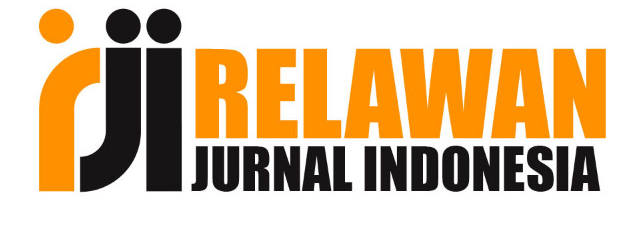Perbandingan Dampak Ekonomi Transportasi Berbasis Jaringan dan Transportasi Konvensional di Negara Berkembang : Studi Kasus di Kota Palembang
DOI:
https://doi.org/10.36982/jiegmk.v9i2.539Abstrak
Abstract
This study aims to look at the economic impact (income) of network-based taxis (online) compared to conventional taxis. The research population is online taxi drivers and conventional taxi drivers in the city of Palembang. The research sample used was 20 online taxi drivers and 20 conventional taxi drivers. Data testing use the independent sample t test. The results showed that there was no difference between the income received by online taxi drivers and conventional taxi drivers.
Keyword : Online Taxy, Conventional Taxy
Abstrak
Penelitian ini bertujuan unuk melihat dampak ekonomi (pendapatan) adanya taksi berbasis jaringan (online) dibandingkan dengan taksi konvensional. Populasi penelitian adalah supir taksi online dan supir taksi konvensional yang ada di Kota Palembang. Sampel penelitian yang digunakan adalah 20 supir taksi online dan 20 supir taksi konvensional. Pengujian data menggunakan independent sample t test. Hasil penelitian menunjukkan bahwa tidak ada perbedaan antara penghasilan yang diterima oleh supir taksi online dan supir taksi konvensional.
Kata kunci : Taksi Online, Taksi KonvensionalReferensi
Ahmed, G., 2012. Krugman Trade Theory and Developing Economies. China-USA Business Review, ISSN 1537-1514 December 2012, Vol. 11, No. 12, 1557-1564.
Bughin, J. & Zeebroeck, N.V., 2017. The Case for Offensive Strategies in Response to Digital Disruption. Working Peper for Discussion. February 2017.
Chen, L., 2015. At $68 Billion Valuation, Uber Will Be Bigger Than GM, Ford and Honda. https://www.forbes.com/sites/liyanchen/2015/12/04/at-68-billion-valuation-uber-will-be-bigger-than-gm-ford-and-honda/#7a2c1ef032e3 di download tanggal 19 Mei 2017.
Chilkoti, A., 2016. Indonesia Threatens to Ban Ride-Hailing Apps. https://www.ft.com/content/0bf08f0a-f646-11e5-96db-fc683b5e52db di download tanggal 19 Mei 2017.
Christensen, C.M., McDonald, R., Altman, E.J. & Palmer, J., 2016. Disruptive Innovation: Intellectual History and Future Paths. Working Paper 17-057. Harvard Business School.
Christopher, M., 2010. Logistics and Supply Chain Management (Fourth Edition). FT Prentice Hall, New Jersey, America.
Cici, B., A. Markopoulou, E. Frias-Martinez, N. Laoutaris., 2014. Assessing the Potential of Ride- Sharing Using Mobile and Social Data: A Tale of Four Cities. University of California, Irvine. UBICOMP 2014. 203-11.
Dong, J., Filipovic, C., Leis, J., Petersen, E., Shrikhande, A. & Sudarshan, R., 2014. Uber: Driving Change in Transportation. The Fletcher School, Tufts University.
Jones, P. & Lucas, K., 2012. The Social Consequences of Transport Decision-Making: Clarifying Concepts, Synthesising Knowledge and Assessing Implications. Journal of Transport Geography.
Kessler, M.L. & Zhang, Y., 2016. Transportation Network Companies: What Does the Future Hold. https://www.nctr.usf.edu/wp-content/uploads/2017/01/UBER-Fad-or-Future-Kessler-2017.pdf di download tanggal 19 Mei 2017.
Li, B. & Li, Y., 2017. Internet of Things Drives Supply Chain Innovation: A Research Framework. International Journal of Organizational Innovation.
Litman, T., 2017. Evaluating Public Transit Benefits and Costs. Best Practices Guidebook. Victoria Transport Policy Institute, 20 April 2017.
Melani, A., 2016. Taksi Jaringan Menyerbu, Kinerja Express dan Blue Bird Kian Lesu. http://bisnis.liputan6.com/read/2689900/taksi-jaringan-menyerbu-kinerja-express-dan-blue-bird-kian-lesu di download tanggal 17 Mei 2017.
Mo, E.M., 2016. The Dynamics of Infrastructure and Economic Growth in Nigeria. Journal of Global Economics. Michael, J Glob Econ 2016, 4:1 http://dx.doi.org/10.4172/2375-4389.100016.
Nicoll, E. & Armstrong, S., 2016. Ride-Sharing: The Rise of Innovative Transportation Services. https://www.marsdd.com/news-and-insights/ride-sharing-the-rise-of-innovative-transportation-services/ di download tanggal 9 Mei 2017.
Nistor, F. & Popa, C., 2014. The Role of Transport in Economic Development. “Mircea cel Batran†Naval Academy Scientific Bulletin, Volume XVII, 2014 - Issue 2 Published by “Mircea cel Batran†Naval Academy Press, Constanta, Romania.
Nurhidayah, F. & Alkarim, F., 2017. Domination of Transportation Network Companies (TNCs) in Indonesia: An Indonesian Case. International Journal of Business, Economic and Law, Vol. 12, Issue 3 (April) ISSN 2289-1552.
Permadi, B., 2017. Infografis: Membandingkan Tarif Taksi dengan UberX, GrabCar, Go-Car. https://kumparan.com/jofie-yordan/infografis-membandingkan-tarif-taksi-dengan-uberx-grabcar-go-car di download tanggal 20 Mei 2017.
Poranda, A.G.A., Regidor, J.R.F. & Napalang, M.S.G., 2016. Comparative Analysis of Transportation Network Companies (TNCs) and Conventional Taxi Services in Metro Manila. 23rd Annual Conference of the Transportation Science Society of the Philippines Quezon City, Philippines, 8 August 2016.
Robles, E., 2015. How to Identify Disruptive New Businesses. Review of Business and Finance Studies. Vol. 6, No. 1 2015.
Sakellaridis, K. & Stiakakis, E., 2011. Business Model Change due to ICT Integration: An Aplication to the Entertainment Indusry. International Journal of Cumputer Information System and Industrial Management Applications. ISSN 2150-7988, Vol. 3.
Taschler, E., 2015. A Crumbling Monopoly: The Rise of Uber and the Taxi Industry's Struggle to Survive. Institute for Consumer Antitrust Studies.
Titheridge, H., Christie, N., Mackett, R., Hernández, D.O. & Ye, R., 2014. Transport and Poverty: A Review of the Evidence.
Tempo., 2016. Sharing Ekonomi, Taksi Jaringan, Apakah Untungkan Bangsa? https://m.tempo.co/read/news/2016/03/22/092755832/sharing-economy-taksi-jaringan-apakah-untungkan-bangsa di download tanggal 17 Mei 2017
Unduhan
Diterbitkan
Cara Mengutip
Terbitan
Bagian
Lisensi
Authors retain copyright and grant the journal right of first publication with the work simultaneously licensed under a Creative Commons Attribution License that allows others to share the work with an acknowledgement of the work's authorship and initial publication in this journal.
Â
Authors are permitted and encouraged to post their work online (e.g., in institutional repositories or on their website) prior to and during the submission process, as it can lead to productive exchanges, as well as earlier and greater citation of published work.
Â
LP2M Indo Global Mandiri University has the right to multiply and distribute the article and every author is not allowed to publish the same article that has been published in this journal.










